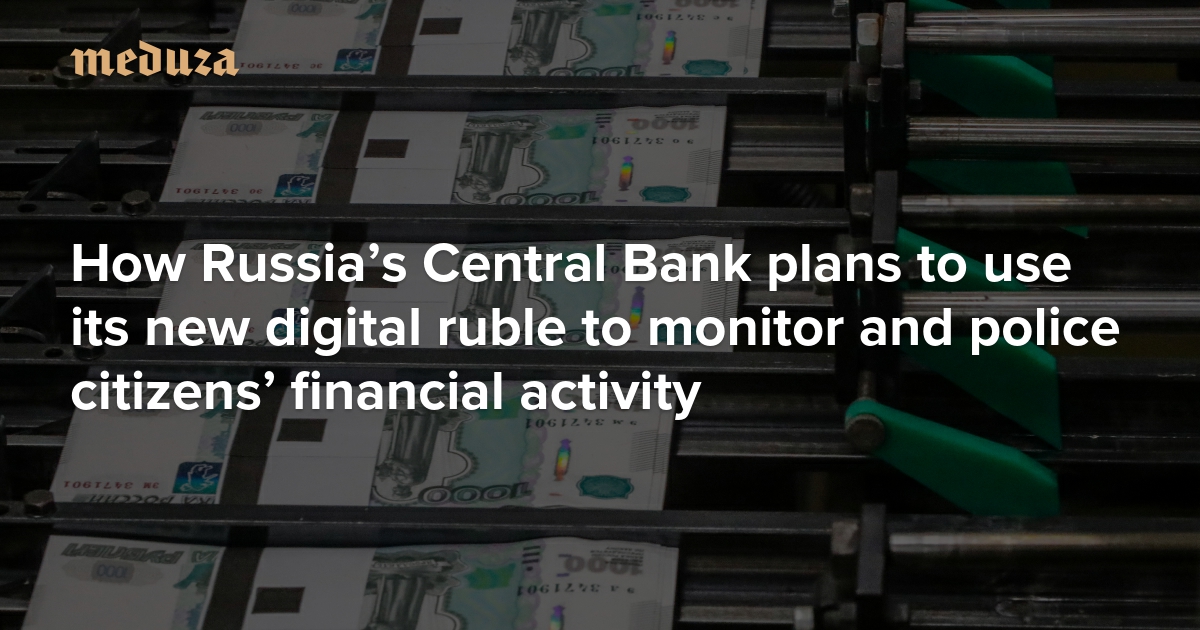- cross-posted to:
- finance@sopuli.xyz
- europe
- cross-posted to:
- finance@sopuli.xyz
- europe
cross-posted from: https://feddit.org/post/859855
In 2025, Russia’s Central Bank plans to fully roll out the digital ruble — a new form of currency that, according to officials, can be used on par with cash and electronic payments, and holds the exact same value as the traditional ruble.
The Russian authorities insist that this new tool is safer than cash and that the fees for using it will be lower than for other electronic payment methods. Every digital ruble has its own unique code, which theoretically makes it possible for the Central Bank to restrict its use — and, according to experts from the digital rights group Roskomsvoboda, to monitor citizens’ transactions.
The issuer of this new form of currency is the Central Bank itself, a key difference to conventional bank transfers. Responsibility for its use and management will fall on the state, not on commercial banks. When customers deposit funds into their digital ruble accounts, they will effectively be lending their money to the authorities.
At the same time, commercial banks will be responsible for all account operations, as well as for ensuring security. Clients will be able to manage their digital rubles through commercial bank apps.
Each digital ruble will always be worth exactly one ruble. However, it’s possible that the authorities will restrict how digital rubles can be spent; the Central Bank may encode certain rubles, for example, so that they can’t be used for gambling or buying alcohol.
Unique codes on each digital ruble will allow the government to directly monitor citizens’ spending when they use the new form of currency.
The digital ruble could become a major tool in the Central Bank’s management of Russia’s finances, allowing not only the monitoring of transactions (the government already surveils non-cash payments) but also “instantaneous and direct control over monetary policy.”
According to the lawyer, the government could use it to instantly implement currency redenomination or impose broad restrictions on money use. “During the COVID restrictions, for example, it would have been possible to use digital rubles to ban payments for [travel] tickets and hotels,” the lawyer said.


